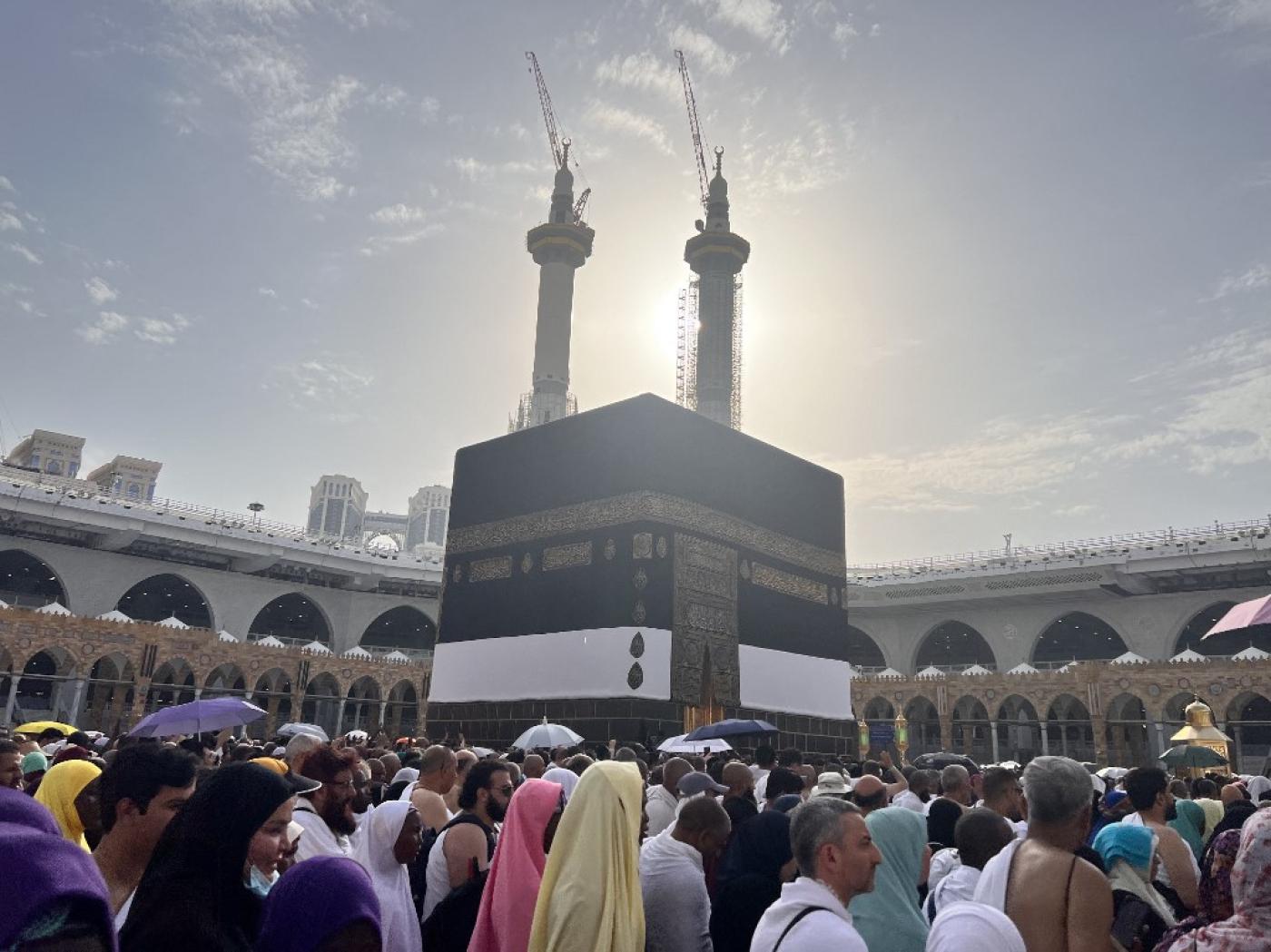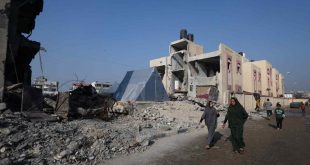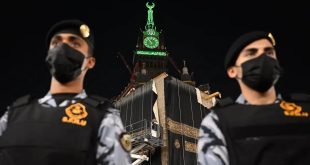More than 2.5 million people are expected to make the holy Hajj pilgrimage now that Covid-19 restrictions have been fully lifted, organisers say
The annual pilgrimage of Hajj began in Mecca, Saudi Arabia on Sunday, with coordinators expecting record-breaking attendance.
Crowds have already begun to build around the Kaaba, the cubed structure at the epicentre of Islam’s holiest site, as worshippers arrive.
“This year, we will witness the largest Hajj pilgrimage in history,” if things go according to plan, predicted an official with the Saudi ministry of Hajj and umrah.
With Covid-19 restrictions fully lifted for the first time in three years, organisers say that more than 2.5 million people are expected to make the holy pilgrimage.
This year’s attendance will likely be more than double that of last, which saw an attendance cap of one million people – still a large increase from the 10,000 allowed to participate in 2020 and 59,000 that were permitted in 2021.
“I am living the most beautiful days of my life,” Abdelazim, a 65-year-old Egyptian who saved for 20 years to pay the $6000 cost he needed to attend, told the AFP news agency at the site.
The Hajj is one of the five pillars of Islam and must be undertaken at least once by all Muslims with the means.
A series of rites are completed over four days in Mecca and its surroundings in the west of oil-rich Saudi Arabia.
On Sunday afternoon, pilgrims started moving to Mina, about three miles from the Grand Mosque, ahead of the Hajj’s climax at Mount Arafat, where the Prophet Mohammed is believed to have delivered his final sermon.
Mina, the world’s largest tent city, readied to receive the influx of pilgrims, with food supplies brought in and security forces deployed around the area.
More worshippers are expected to head to Mina on Monday, as a vibrant atmosphere takes hold of the tented city with the arrival of pilgrims by foot or via air-conditioned buses.
‘Great blessing’
Outside the Grand Mosque, thousands prayed on colourful carpets that adorned the pavement, with male pilgrims wearing simple white robes. The area was dotted with ambulances, mobile clinics and fire trucks.
The Hajj poses a considerable security challenge and has seen several disasters over the years, including a 2015 stampede that killed up to 2,300 people.
There have been no major incidents since, and catastrophe was the last thing on pilgrims’ minds.
“I cannot describe my feelings,” said Indonesian student Yusuf Burhan, 25. “This is a great blessing. I never imagined that I would perform the Hajj this year.”
This year’s summer timing for the Hajj, which follows the lunar calendar, is testing the endurance of worshippers during the mostly outdoor ritual.
Carrying white umbrellas to shield themselves from the scorching sun, policemen in the mountainous city have conducted foot patrols and set up checkpoints to inspect Hajj permits.
Others splashed water on pilgrims as temperatures climbed towards 45 degrees Celsius (113 degrees Fahrenheit).
Thousands of paramedics were on standby inside the Grand Mosque. Saudi authorities said more than 32,000 health workers will be on hand to treat cases of heatstroke, dehydration and exhaustion.
‘Not a single vacant bed’
The Hajj, which costs at least $5,000 a person, makes billions of dollars a year for Saudi Arabia, the world’s biggest oil exporter, which is trying to diversify its economy beyond fossil fuels.
Saudi businessman Samir al-Zafni said all his hotels in Mecca and Madinah are at full capacity until the first week of July.
“This year there is not a single vacant bed in our group of 67 hotels,” he told AFP.
The Hajj also demonstrates social reforms in the deeply conservative kingdom.
This year’s pilgrimage will be the biggest since Saudi Arabia scrapped rules in 2021 that banned women who weren’t accompanied by a male relative.
Waiting for a car to take him out of the vicinity of Mecca’s grand mosque, Moroccan merchant Abdullah al-Haqouni, 65, said he was struggling with the temperature.
“I am very tired. The heat is unbearable,” he said, carrying a green umbrella. “God help us.”
 Sri lanka Muslims Web Portal Diversity and Inclusiveness
Sri lanka Muslims Web Portal Diversity and Inclusiveness






